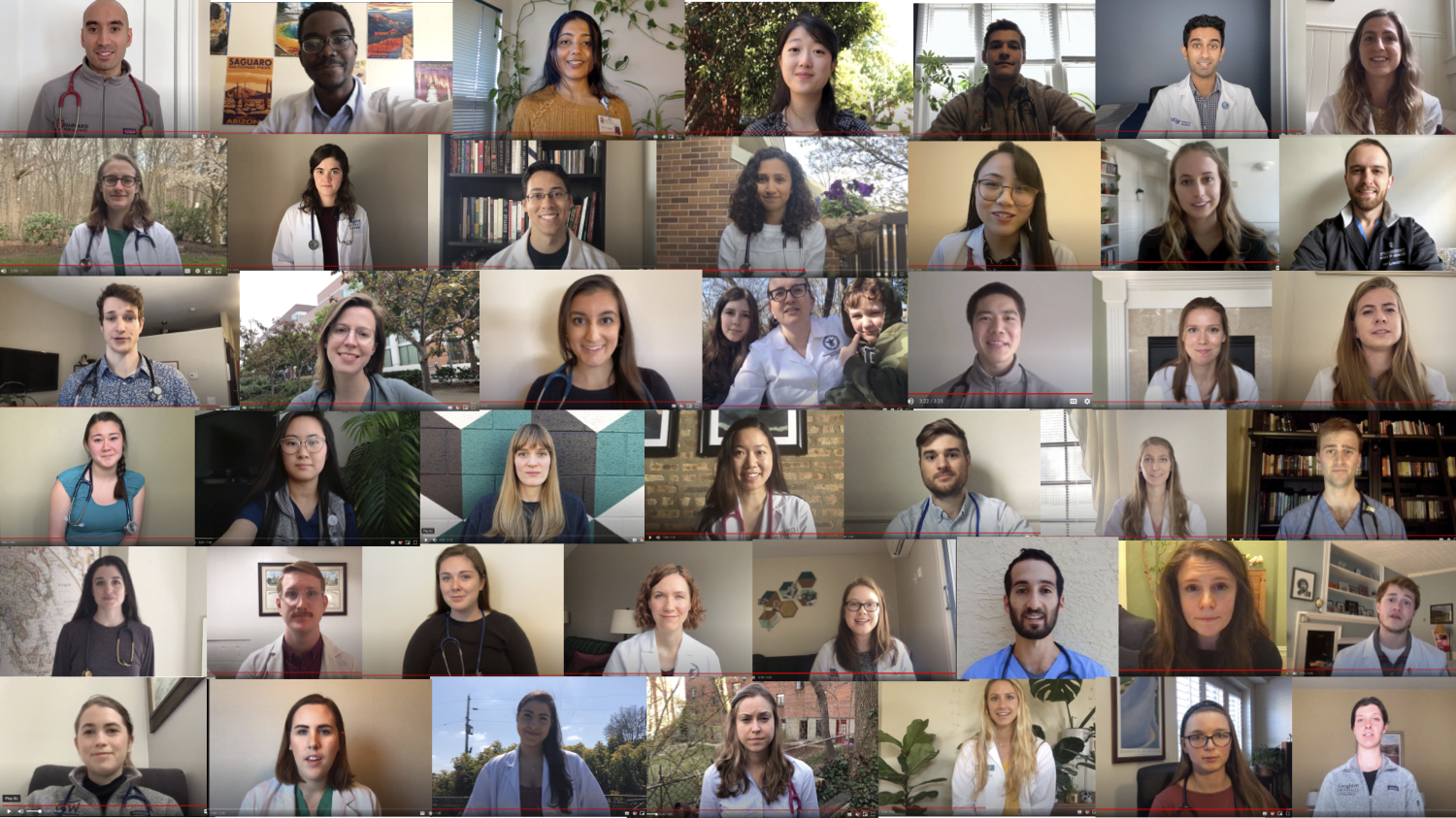While Americans grapple with the horrors of the COVID-19 pandemic, many ask how they can support their cherished communities and those risking their lives on the frontlines. Along with organizing PPE drives and providing mutual aid, there is something else we all can do to prevent our communities from facing crises like the one before us: organize to address climate change.
As medical students, we are embarking on a career to join our mentors and colleagues to protect health. While the toll of this pandemic has rendered it difficult to think about the climate crisis, now, more than ever we are reminded that our planet is sick. On this 50th anniversary of Earth Day, we must reflect on the lessons from COVID-19 and how they can equip us to tackle what the World Health Organization has called “the greatest threat to global health in the 21st century.” Honoring our oath to “first, do no harm,” we must safeguard the health of our planet and communities. We implore Americans to vote for leaders who champion ambitious climate policies.
The Present: Lessons from the COVID-19 Pandemic
Despite warnings of an impending outbreak, we were unprepared for COVID-19, leaving our health system overwhelmed and patients vulnerable. Beyond our hospitals, COVID-19 is exposing unsightly health inequities. Older adults, people with chronic conditions and communities of color suffer from higher rates of mortality from this virus. Our current system of employer-based health insurance leaves those who are unemployed without health insurance. Simultaneously, lack of paid sick leave renders many low-wage essential workers unprotected. The added strain of these systemic inequities is stretching even our modern health system beyond capacity and perpetuating great and avoidable suffering.
The Future: Healing in a Time of Climate Change
Like COVID-19, climate change is a major global threat and health emergency. We have already seen increases in lethal heat waves, massive flooding in the Midwest and raging fires on the West Coast, all of which have harmed patients, health centers and economies. Climate change is already increasing the global burden of disease, including increased hospitalizations for people with COPD, asthma and heart failure, and increased rates of birth defects, cancer and psychiatric disorders. Additionally, due to human activity and climate factors, three out of every four new or emerging infectious diseases, like COVID-19, are zoonotic in origin, meaning they originate in animals and jump to humans.
Like COVID-19, climate change will overwhelm already strained health systems and essential services. Researchers are increasingly worried about how first responders will continue to fight COVID-19 amidst predictions of flooding in 23 states by the end of May, a hyperactive hurricane season this summer and more wildfires in the West. If we do not prepare, these compounding crises will debilitate our workforce, global supply chain and health care system. These situations, once unfathomable, feel all too real in the current pandemic.
Like COVID-19, climate change will exacerbate existing socioeconomic inequities. Without equal access to clean water, air, food, housing and health insurance, historically marginalized and vulnerable populations will bear the initial brunt of the health consequences of climate change. Extreme weather events will disrupt health care delivery, resulting in increased morbidity and mortality for people with acute and chronic illnesses. Furthermore, 88% of the burden of climate change will fall on children as they are particularly susceptible to compromised environments.
As we build a healthy future, these important consequences must be considered.
Call to Action
The nightmare of the COVID-19 pandemic offers a view of what climate change will impose on our future health system and communities if uncontrolled. As future doctors, on the 50th Anniversary of Earth Day we raise our voices in unison to draw attention to the urgency of the climate crisis.
We are moved by the solidarity of communities as they innovate and collaborate to tackle this pandemic. In the coming weeks and months, our government and society have the opportunity to recalibrate and rebuild for a more equitable, healthy future.
We urgently call on our elected officials to uphold their oath to protect the American people. We need more than adequate pandemic preparedness. We need a systematic transformation with the capacity to respond to the increasing number of health crises before us. Policies like universal health coverage, the Green New Deal and the Paris Agreement will protect our communities and health systems, paving the way for a future of economic prosperity and justice.
In honor of all those risking and adapting their lives during this pandemic, we urge our fellow Americans to vote for candidates who support climate action. We have the tools we need to combat the climate crisis and protect health. Now, we need the political will to use them.
Together, let’s vote to flatten the curve on climate change.
Watch our video below to learn more.
Image credit: courtesy of Medical Students for a Sustainable Future.


